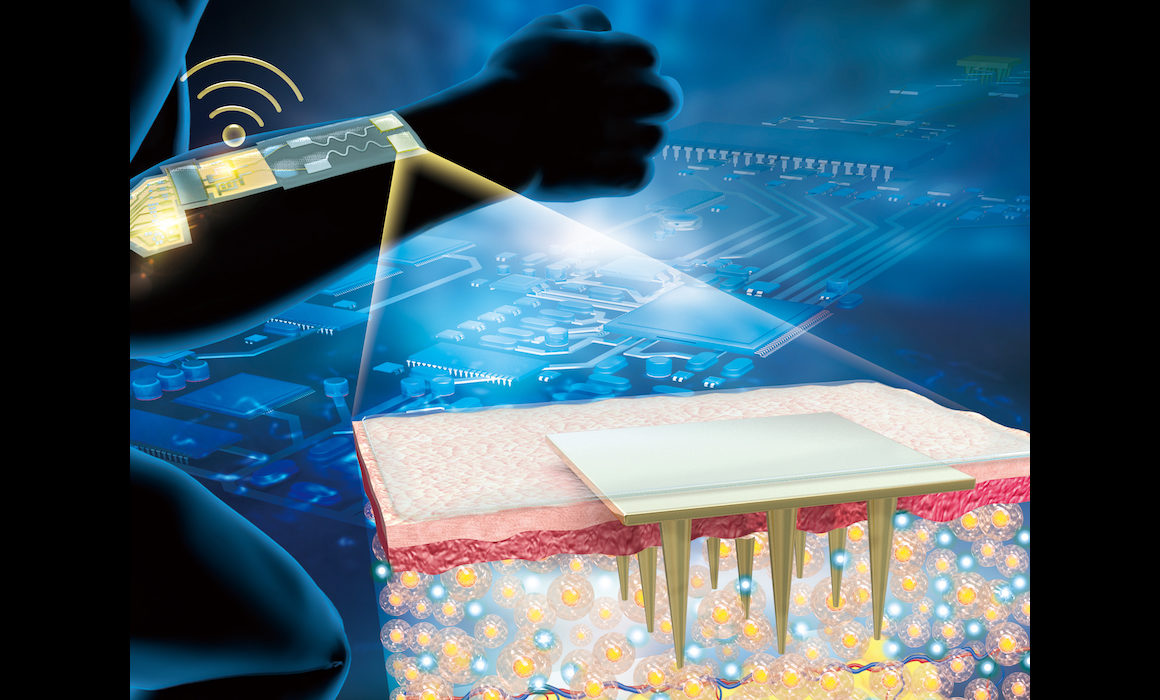Photo credit: Advance Materials Magazine
Patients suffering from sodium-related diseases and other conditions currently must visit a clinic or hospital for blood tests that can be painful and do not provide online or immediate results. Now, Technion researchers have developed a smart, wearable “band-aid” fitted with microneedles that continuously monitor a person’s medical condition and send the data to the patient or doctor.
The research, recently featured on the cover of Advanced Materials, was led by Professor Hossam Haick, postdoctoral fellow Dr. Youbin Zheng, and Ph.D. student Rawan Omar of the Wolfson Faculty of Chemical Engineering and the Russell Berrie Nanotechnology Institute.
One of the things the device could help monitor is the patient’s sodium level. Sodium is essential for healthy muscle and nerve functioning. When sodium levels in the blood rise or drop below normal — resulting in hypernatremia or hyponatremia — the patient can suffer from lethargy, confusion, seizures, or even a loss of consciousness.
Unlike standard medical needles, which are inserted into the skin up to the blood vessels and nerves and can cause pain and bleeding, the smart, pain-free microneedles are short and thin, crossing only the first layer of skin. Despite their length, they reach into the interstitial fluids around the cells to measure various biological and chemical components such as sodium, glucose, and pH levels. The information is then relayed wirelessly through cloud and IoT (Internet of Things) technologies.
This real-time, continuous monitoring not only keeps a patient’s sodium levels in check but can lead to early detection of other physiological disorders that might prevent serious heart and kidney diseases, infectious diseases, and more.
Wearable devices like this help relieve the overburdened health system during the COVID-19 pandemic by allowing patients to safely go about their day-to-day routine. “To adapt the technology to daily life,” Prof. Haick said, “we have developed a unique band-aid that stretches and contracts along with the skin and therefore does not interfere with any action whatsoever.” He used relatively inexpensive materials to make the system available to all. “The technology represents a leap forward in diagnosing diseases and continuous physiological monitoring at home and in the clinic.”


